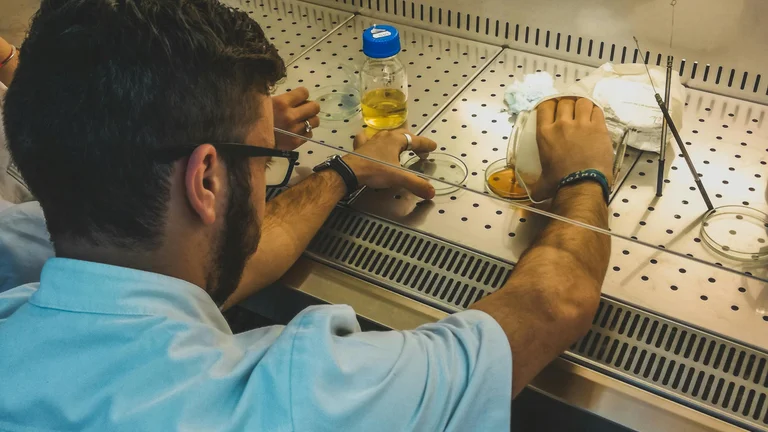The Landscape of Biotechnology Investment

The biotechnology sector has seen substantial growth and innovation over recent years. This field involves manipulating living organisms to develop or make products. It includes a range of applications from agriculture to healthcare. Investors seeking opportunities in biotechnology must understand this landscape, which is characterized by a variety of companies, ranging from startups to established players in pharmaceuticals and medical devices.
The growth in biotechnology is driven by advancements in science, increasing regulatory support, and a demand for innovative health solutions. Biotech companies are frequently at the forefront of groundbreaking research, making the sector ripe for investment. However, navigating this space requires thorough research and understanding of both the opportunities and risks involved.
Understanding the Risks and Rewards
Investing in biotechnology can be profitable, but it carries a unique set of risks. One key factor is the volatility of biotech stocks, as they can be significantly affected by clinical trial results, regulatory approvals, and market competition. A single event, like a failed trial or a regulatory rejection, can drastically affect a company's stock price.
On the reward side, successful biotech companies can see exponential growth, especially if they develop a product that meets a substantial medical need. The potential for high returns can be attractive, particularly in light of the rapid advancements in genetic therapies, immunotherapies, and personalized medicine.
Evaluating Biotech Companies
When evaluating potential investments in biotech, consider several factors. First, examine the company's pipeline. A strong pipeline with multiple candidates in various development stages can mitigate risk, as it increases the chances of a successful product. Furthermore, assess the company’s financial health. This includes looking at cash reserves, burn rate, and funding history.
Additionally, consider the management team. Experienced leadership with a track record in biotech can be a significant asset. Finally, pay attention to collaborations and partnerships. Licensing agreements with larger pharmaceutical companies can provide not only funding but also valuable resources for development and commercialization.
Diversity in Investment Approaches
There are several ways to invest in biotechnology. Investors can choose to buy individual stocks of biotechnology firms, which allows for potentially high rewards but includes high risk. Alternatively, exchange-traded funds (ETFs) focused on biotechnology can provide exposure to a broader range of companies, thus diversifying risk.
Venture capital is another channel for those looking to invest heavily in early-stage biotech startups. While this option can be riskier due to the early stage of the companies involved, it also carries the potential for substantial returns if a startup successfully brings a product to market.
Future Trends in Biotechnology
The future of biotechnology investing looks promising with several trends shaping the industry. One trend is the increasing focus on personalized medicine, tailoring treatments to individual patient profiles based on genetic information. This shift is due in part to the decreasing costs of genomic sequencing.
Moreover, the application of artificial intelligence and machine learning in drug discovery could streamline the development process, making innovation faster and more efficient. Additionally, gene editing techniques, like CRISPR, are at the forefront of research, opening up new avenues for treatment and therapy. Investors looking forward can benefit from keeping an eye on these developments.
| Aspect | Consideration |
|---|---|
| Risk Factors | Volatility, regulatory hurdles, trial results |
| Investment Types | Stocks, ETFs, venture capital |
| Evaluation Criteria | Product pipeline, financial health, management |
| Future Trends | Personalized medicine, AI in drug discovery, gene editing |
FAQ - Investing in Biotechnology
What are the key risks associated with investing in biotechnology?
Key risks include stock volatility driven by clinical trial outcomes, regulatory approvals, and market competition.
How can I evaluate a biotechnology company for investment?
Look at their product pipeline, financial health, leadership experience, and existing partnerships.
What are the benefits of investing in biotech ETFs?
Biotech ETFs provide diversified exposure to multiple companies, reducing individual stock risk.
What future trends should I watch in biotechnology?
Focus on personalized medicine, AI in drug discovery, and advancements in gene editing technologies.
Is investing in early-stage biotech startups risky?
Yes, investing in early-stage firms is high risk but can lead to substantial returns if successful.
Investing in biotechnology offers opportunities for high returns but comes with risks, such as stock volatility and regulatory challenges. Evaluating companies based on their product pipeline, financial health, and management is crucial. Understanding market trends, including the rise of personalized medicine and AI, can inform smarter investment decisions.
Conclusão sobre Investing in Biotechnology.